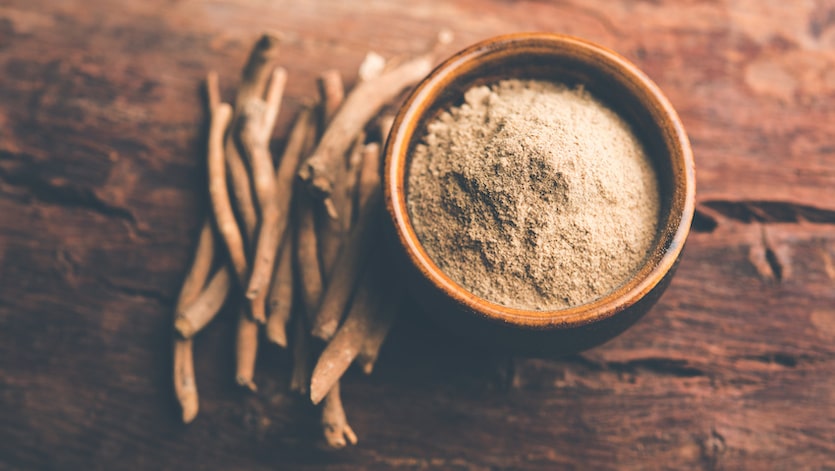
Herbs and plants have been used throughout history for their beneficial properties. Over 5,000 years ago Eastern civilizations began using natural herbs, practices, and recommendations for the entire spectrum of health needs, including stress.
Ashwagandha is one of the most important ancient herbs. It has been used to relieve mild stress, maintain energy levels, and support concentration. Recently, holistic practices for health have become popular across the world, and Ashwagandha has enjoyed a worldwide resurgence.
What is Ashwagandha?
Ashwagandha (Withania somnifera) is a small shrub with yellow flowers found primarily in Asia and Africa. Its name is Sanskrit for “smell of the horse” because of the herb’s scent. Although it’s traditionally ingested by making tea from the root, it is now commonly available as a supplement.
Ashwagandha is an example of an adaptogen. This class of substances can support the body’s natural resistance to occasional stress. You can think of adaptogens as “bioregulators” that help support your body when dealing with minor stress in the environment.
Ashwagandha exhibits these adaptogenic properties:
- Non-specific effect on the body. Ashwagandha doesn’t target a single mechanism or biochemical pathway. It supports the body’s resistance to occasional stress broadly and exhibits a variety of benefits.
- Does not harm the usual function of the body.
Adaptogens can contain a variety of phytonutrients. The active compounds in Ashwagandha include alkaloids, lactones, and saponins.
Benefits of Ashwagandha
Your body has a built-in process for dealing with occasional stress called the general adaptation syndrome (GAS). This process has three stages: alarm, resistance, and exhaustion.
The stimulating effect of Ashwagandha maintains the resistance phase and buffers the exhaustion phase. Instead of a hard crash at the end of the stress response, Ashwagandha supports the transition from the resistance phase into a balanced state of homeostasis. This new state of balance allows the body and mind to carry on, even during a slightly stressful event.
The benefits of Ashwagandha may include:
- Antioxidant activity
- Supports calm feelings
- Helps maintain healthy brain function
- Supports normal levels of cortisol and neurotransmitters
- Supports resistance during mild stress
- Supports healthy sleep
- Supports athletic performance
Ashwagandha “hacks” your body’s natural stress response. It initiates the same physiological responses that a little bit of stress would—without harming the body. This increases the body’s resilience and helps you maintain balance during occasional physical, mental, or environmental stress.
Research Behind Ashwagandha
Although Ashwagandha has been used for thousands of years, western scientists have just begun studying all its benefits and applications. As modern research catches up, many of their findings support the way Ashwagandha has been traditionally used.
One study conducted in 2012 broke patients into two groups: one group received a capsule of high-concentration ashwagandha root extract twice a day; the other group was given a placebo capsule twice a day. The study lasted for 60 days, over the course of which participants filled out stress-measuring questionnaires and had their cortisol (a hormone related to stress) levels measured.
After 60 days, the study participants who received ashwagandha had lower cortisol levels than those who received a placebo. This result suggests that ashwagandha may be effective at reducing occasional stress in individuals—a conclusion that is supported by a number of other studies as well.
Additionally, a 2019 study found that participants who were given ashwagandha twice daily experienced improved sleep compared to participants in the placebo group. Given the stress-managing effects of ashwagandha, this result isn’t terribly surprising, but it does illustrate another possible application for ashwagandha: supporting healthy sleep.
The only possible side effect noted from consumption of Ashwagandha was minor stomach upset. It is also not recommended during pregnancy.
Resist Occasional Stress with Ashwagandha
The best way to decide if you’ll benefit from Ashwagandha is to try it out. Add a cup of Ashwagandha tea to your morning routine. Or maybe try a supplement daily for a week.
Whether it’s work, family commitments, or just life in general, Ashwaghanda could be the support you need to get through a difficult time.
References
